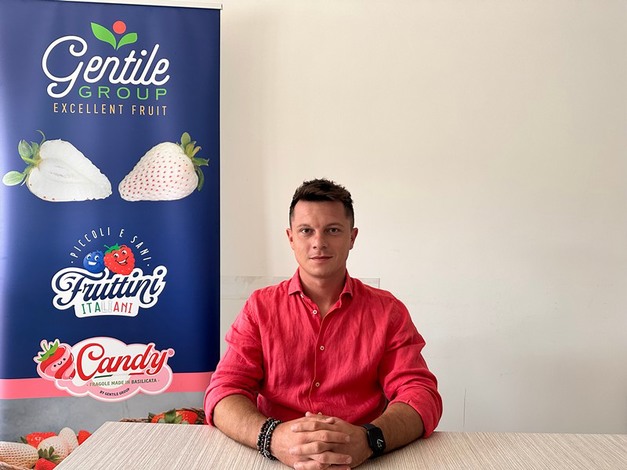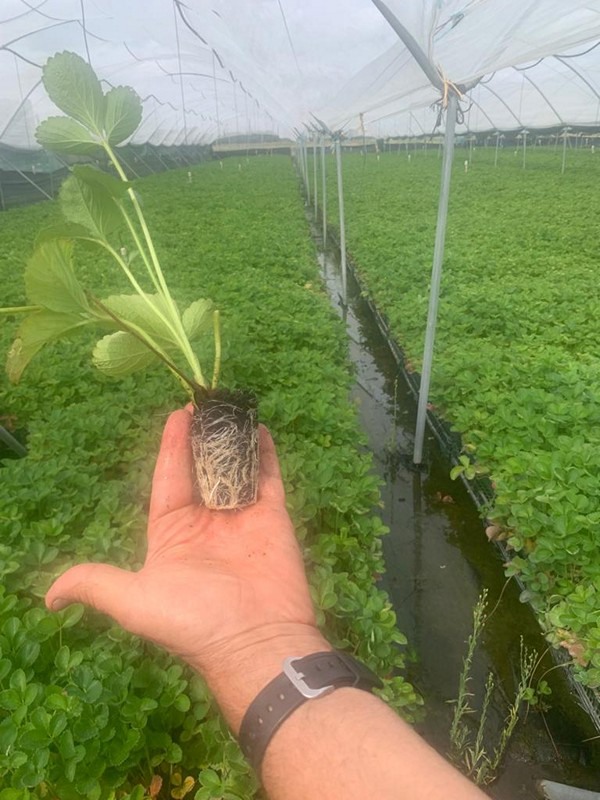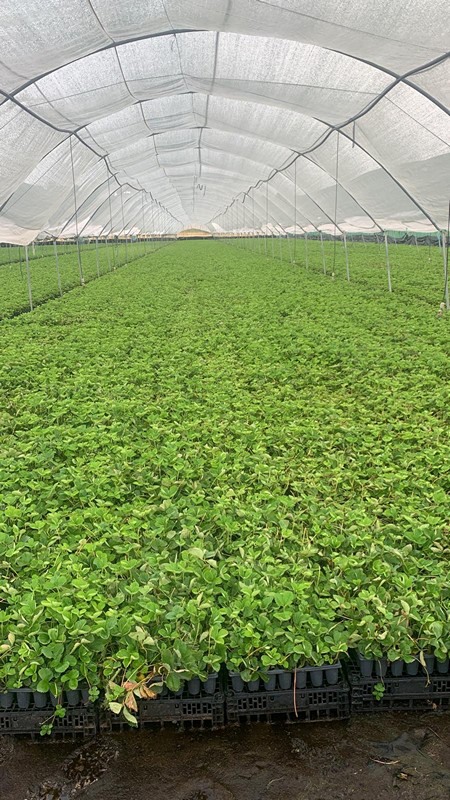There are a number of farms in southern Italy that have made the drastic decision to eliminate early September potted strawberry transplants from their production program.
Loris Gentile, CEO of the Gentile Group and president of Fruplant Lab Italia, talks about this and expects a very low volume of strawberries in December compared to the same period last year.
 Loris Gentile
Loris Gentile
There will be a shortage of strawberries this Christmas. Our estimate is that the acreage of early potted strawberries is down by more than half. There are several reasons for this, but one is that last season, we used varieties that were not entirely suitable for potting. Partly because of the unusually mild temperatures in November/December, they developed high vegetative vigor at the expense of fruit development, which also caused fungal problems."

The decision to abandon this type of planting, which only guarantees small quantities during the winter, was also prompted by last year's excellent sales of strawberries grown from late transplanted bare root plants.
"The cost-benefit ratio has discouraged companies in southern Italy from continuing to invest in transplanting in September. In 2023/24, the company will focus on the extra-early segment. The first truck of seedlings will arrive in a few days, and more will be arriving by September 20. We will start planting several bare root varieties. We selected very valuable varieties which are not popular in the Italian market. We study each farm's growing and commercial needs and offer the varieties best suited. On the basis of our experience and the results of the cultivation of the different varieties proposed for southern Italy in our experimental fields, we have determined the right type of plant (potted or bare root) for each variety.
from continuing to invest in transplanting in September. In 2023/24, the company will focus on the extra-early segment. The first truck of seedlings will arrive in a few days, and more will be arriving by September 20. We will start planting several bare root varieties. We selected very valuable varieties which are not popular in the Italian market. We study each farm's growing and commercial needs and offer the varieties best suited. On the basis of our experience and the results of the cultivation of the different varieties proposed for southern Italy in our experimental fields, we have determined the right type of plant (potted or bare root) for each variety.
The manager then explains that the situation in his company's plant nurseries seems perfect in a year when growers have to use alternative means of soil sterilization. "In Italy, especially for the less rustic varieties, there is uncertainty about the success of transplanting. But we trust in the careful work of the nurseries. This year, there is a climate of uncertainty in Huelva, Spain. Water restrictions have been drastically reduced. In the south of Italy, which is gaining ground every year against foreign products, this factor could give a boost to cultivation. But for now, these are just expectations. There are certainly no statistics. The only certainty is that consumers prefer the Italian product because it is safer and fresher but more expensive," concludes Gentile.
For more information:
Gentile Group
Via S. Valicenti, 6
75025 - Policoro (Mt)
Tel.: (+39) 379 2280437
direzione@gentilegroupitalia.it
gentilegroupitalia.it
